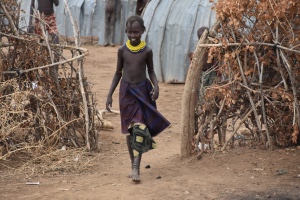
Addis Ababa/New York: While the situation in violence hit Tigray is volatile and unpredictable, and there is spill-over of the conflict to neighbouring Afar and Amhara regions, within Tigray, humanitarian access has significantly improved with an estimated 75 per cent of the area now accessible, according to the the United Nations Office for the Coordination of Humanitarian Affairs operating there.
However, the flow of humanitarian supplies into the region remains insufficient, even as staff rotation to and from the region is improving, Stéphane Dujarric, Spokesman for the UN Secretary-General, said in New York.
Last week, the UN Humanitarian Air Service operated two flights from Addis Ababa to Mekelle as planned. Convoys transporting UN staff from Mekelle to Semera took place on August 3 and August 6, 2021.
Reports suggest that access via the only road through Afar region remains partially open due to insecurity and thorough searches at checkpoints. While in Amhara, an estimated 200,000 people have been displaced and in Afar, more than 76,000 people are reportedly displaced following the entry of Tigray forces into the region, the UN Office is also looking into information that a health clinic and a school being used to shelter internally displaced people in Galikoma Kabele in the Fenti Zone were shelled and that a warehouse was ransacked.
Also read: Inside Ethiopia: The bloody thorn in the Horn of Africa!
Statement issued by the Oromo Liberation Army saying that they are now in a military alliance with the Tigray People’s Liberation Front, and their leader being quoted as saying the only solution now is overthrowing this Government militarily, spells further disaster in the troubled region.
As the fighting continues, though of late there has been some of it abating, which has allowed for greater humanitarian access, there are still some zones of conflict. There have been reports of human rights violations and Amnesty International yesterday came out with a report on the allegations of rapes and enslavement by military forces against women in Tigray. “It’s one of these cases where we’ve run out of words to describe the horror of what civilians are being inflicted. More conflict can only lead, sadly, to more civilian pain,” Dujarric said, reiterating the UN Secretary-General’s stand that that there is no military solution to this conflict.
– global bihari bureau





